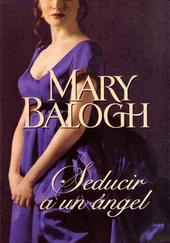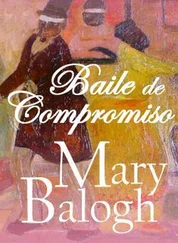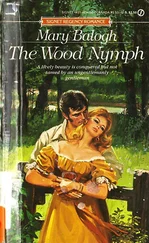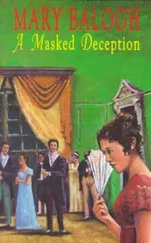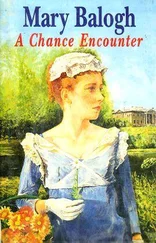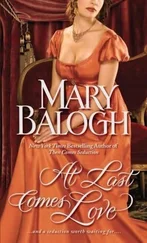WILL WE REACH BRUSSELS SOON, ELLEN? I must say, Belgium is a disappointment so far. It is so flat and uninteresting. Will Brussels be more exciting? I have dreamed about it all through the dreary winter at school. Is it as magical a place as they say?” Miss Jennifer Simpson sat with her nose almost touching the glass of the carriage in which she traveled with her stepmother. She was clearly not intent on waiting for answers to her questions. She had asked the same ones a dozen times since they had left Antwerp.
“It is just an ordinary city,” Ellen Simpson said, “made extraordinary by the presence of so many allied troops at present and so many different uniforms. We will be there soon enough. You will feel better once you have seen your papa again. I know he can scarce wait to see you.”
“Oh,” Jennifer said, withdrawing her gaze for a moment from the passing scenery, “I still cannot quite believe that I am finished with school forever and ever, Ellen. I am eighteen years old, and this time I will stay with you and Papa, not be packed off back to school almost before I have started to enjoy myself.”
Ellen smiled. “I know your papa is rather concerned about bringing you here,” she said. “It was really too bad that Bonaparte was allowed to escape from Elba and that the King of France has fled to Ghent. I had hoped that the wars were over. But it appears that they are not. You may not be here for long after all, Jennifer. But I know your papa wanted you with him for a while.”
“Oh, but the Duke of Wellington is here now,” Jennifer said. “You told me so, and Helen West’s sister wrote her that all would be safe once the duke arrived. And she also wrote that there are so many entertainments in Brussels that it is sometimes hard to choose among them. That is true, is it not, Ellen? And you helped me buy all those gorgeous clothes. And the city is full of officers and scarlet uniforms. It is a pity that Papa’s uniform is green. It is not near as dashing as the Guards’ uniforms.”
“I am quite sure you will be here quite long enough to enjoy yourself,” Ellen said. “I hope so. I know your papa wants to spend some time with you before he has to go into battle again.”
“But there is always a grave danger that he might not,” Ellen said quietly. “You do not know, Jennifer. Your papa always kept you away from the army, which was as well. You were never in Spain and did not see the battlefields after battles.” She shuddered. “If you had seen, you would have marveled that anyone survived at all. Your papa has lived through so many battles. It does not seem fair that he must face yet another.”
“I forgot.” Jennifer laid a hand on her stepmother’s arm, her pretty face contrite. “Your own papa was killed in one of those battles. And you were there with him. It must have been dreadful.”
“Yes.” Ellen patted the girl’s hand. “It was. But at least he was killed instantly. That is a blessing one learns to be thankful for when one has lived close to battle.”
Jennifer squeezed her stepmother’s arm before removing her hand. “And you and Papa married,” she said. “He is fond of you, is he not? I used to be jealous for a while. I think I even hated you until I met you. Do you think I will find a husband here, Ellen? Am I pretty enough, do you think?”
Ellen smiled into the anxious face turned to her own. “You know you are,” she said. “But I would not be in too much of a hurry to fix your choice if I were you, Jennifer. Not with the times so uncertain. There is no point in inviting heartache.”
They lapsed into silence while Jennifer gazed with renewed eagerness and impatience from the window. Indeed, the girl was very pretty, Ellen thought. She was small and shapely, with masses of shining dark ringlets peeping from beneath her bonnet, and an eager, dark-eyed, rosy-cheeked face. She would doubtless be a great favorite with the officers who thronged the drawing rooms and ballrooms of Brussels. And she would have all the entertainments and activities she dreamed of. Even before Ellen had left for England three weeks before, there had been an almost desperate gaiety about social life in Brussels. There was a great battle looming. She could feel it in her bones.
And though she looked with amused indulgence at the openly impatient girl turned to the window beside her, she found herself too looking eagerly from the window, trying to recognize landmarks, hoping to see one that would indicate they were close to Brussels at last. Close to home.
Not that Brussels was home, of course. But then, nowhere else was home either. She had not had a static home for ten years. Home was Charlie. And Charlie was in Brussels. She would see him soon. Three weeks she had been away from him. An eternity! She had never been away from him for so long, not since their marriage five years before. She felt tears prick at her eyelids as she gazed from the window.
Charlie was fifteen years her senior, forty to her five-and-twenty years. He was not at all the sort of man she would have expected to love, but she did love him with a fierceness that was almost a pain. He looked perhaps even older than his years. He was balding and portly, though not with soft living. He had been a soldier since he was sixteen, and had been hardened by rough living conditions, especially the almost indescribably harsh conditions of life in Spain during the Peninsular wars.
She had met him in Spain when she had gone there with her father, and he had always been kind to her. She had been fifteen years old at the time, and she had been bewildered, distraught over the events that had taken her there with a father who was a stranger to her, and unable for a long time to adjust to life lived in the tail of a vast army.
When her father had been killed in battle, Charlie had been the one to break the news to her, the one to comfort her, though by that time she had made a wide circle of friends. And they had married soon after. Perhaps it had seemed to some that it was a marriage of convenience on her part. And perhaps it was in a way. She certainly had not seemed to have anywhere else to go. But she had loved him even then, and her love had grown daily since. There was not a kinder man in the world than Charlie Simpson.
Ellen closed her eyes. She would not get there sooner by willing the miles to pass. Soon now she would see him again. She would feel his arms around her again. She would be safe again.
And once more she would begin the wait for yet another battle. Another battle that might take him away from her forever. They had talked of a home in the country in England when Napoleon had been finally defeated and exiled to the island of Elba. She might finally have had a life free of anxiety. It did not seem fair. Oh, it was not fair!
But for all that, life lived with an army was something that somehow got into one’s blood. Charlie had not wanted her to come to Brussels with him. He had wanted her to stay in England. But how could she have done that? She would have been away from the only person in the world who really mattered to her. And she would have been away from her friends-Charlie’s friends, and a few of their wives.
She liked to bring some of the comforts of home to those men who did not have wives. She was particularly fond of Lord Eden-Lieutenant Lord Eden-her husband’s closest friend, and as different from him as night is from day. Lord Eden was her age; he was a baron, the younger brother of the Earl of Amberley; he was very handsome. He was tall, broad-shouldered, well-muscled, agile; and he had fair, wavy hair, distinctive green eyes, and a laughing, handsome face. He was wealthy, well-educated, and charming. So different from Charlie, whose father was titled, it was true-he was Sir Jasper Simpson-but who had been estranged from his family nineteen years before and had known nothing in his life beyond the army.
Читать дальше


